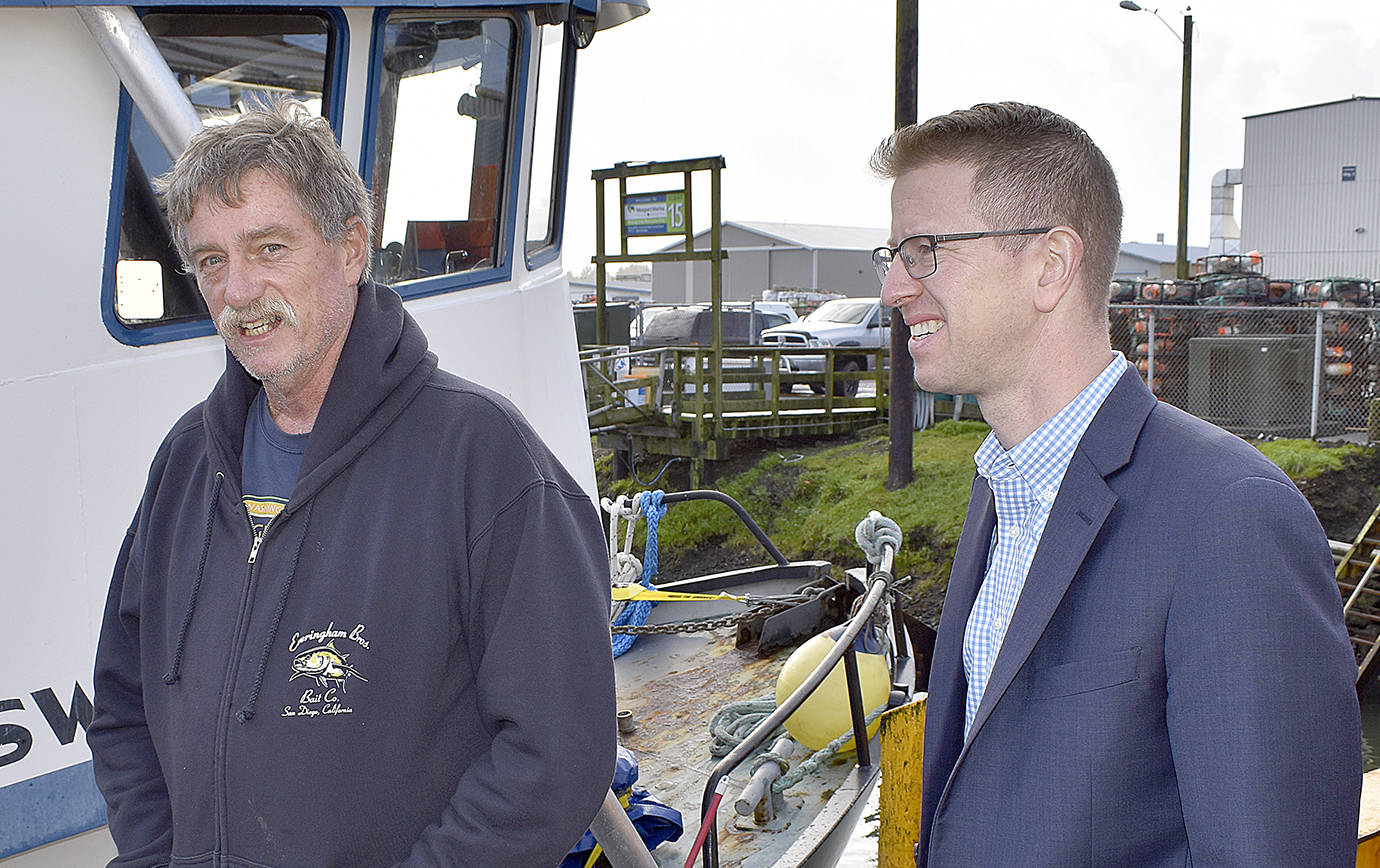With the Westport Marina bustling in preparation for the commercial crab opener today Saturday, representatives from recreational and commercial fishing interests, the Port of Grays Harbor and shellfish interests met with Congressman Derek Kilmer, D-Gig Harbor, in Westport Friday morning to talk about his new bill regarding fisheries disaster relief and the complex issues surrounding the fishing industry.
Kilmer talked about the legislation he recently introduced — the Fishery Failures: Urgently Needed Disaster Declarations Act — which is designed to improve the federal fishery disaster process and provide more timely disaster relief for affected communities when a fisheries disaster is declared.
The act would “expand the eligibility for assistance” and “get past delays to get help to those who need help,” said Kilmer. He said it’s financial relief during these disasters, declared when factors outside the control of the fishing interests themselves impact charter and commercial fishing businesses, that “can be the difference between maintaining these businesses or them going out the door.”
Butch Smith, Ilwaco Charter Association president, relayed the story of a recent declared disaster in March 2016. He said it took almost two years for the money to be appropriated, and it wasn’t until the fall of 2019 that the checks were sent out.
“A sad fact of that is we had already lost people, and the tougher thing is we lost the younger people who couldn’t hold out” until the assistance arrived, he said. He said with lost fishing jobs, “others go with them,” like restaurant and hotel jobs.
Kilmer explained, under the act, which he put together with U.S. Rep. Jaime Herrera Beutler, the U.S. Department of Commerce would have 120 days to evaluate a fisheries disaster. Once that is completed and a spending plan is developed, the money has to go out to approved recipients in 90 days.
On the topic of young people getting into the fishing business, Columbia River Crab Fishermen’s Association President Dale Beasley said, “Young folks are disappearing. We’re in a place where young folks find it difficult to get in and stay in business.”
An example was given, where one participant in the round-table said when he started in the salmon fishing business, his initial investment was a few thousand dollars. Fast forward to now, and to get into the commercial crab fishing game, the initial outlay could be $1 million or more.
Another part of the discussion talked about putting some federal money into marketing so-called “less desirable” fish that are not as popular with consumers. In the case of Dover sole, for instance, millions of pounds are going unharvested because there simply isn’t the market for it, industry officials say.
Kilmer relayed a story after the meeting about another meeting recently in Neah Bay, during Makah Days, where organizers made fish tacos out of various types of fish and challenged those eating them to decide which were made with “less desirable” fish. “I couldn’t tell the difference,” he said, nor could many others. If these fish were marketed, said some at the round-table, it would be a big boost to commercial fishing.
License costs, challenges with the Endangered Species Act and clean water rules, shellfish bed licensing and the burrowing shrimp problem for shellfish producers, and numerous other factors were discussed in the one-hour meeting, with Kilmer concluding by asking each participant to follow up with his office about their concerns.


